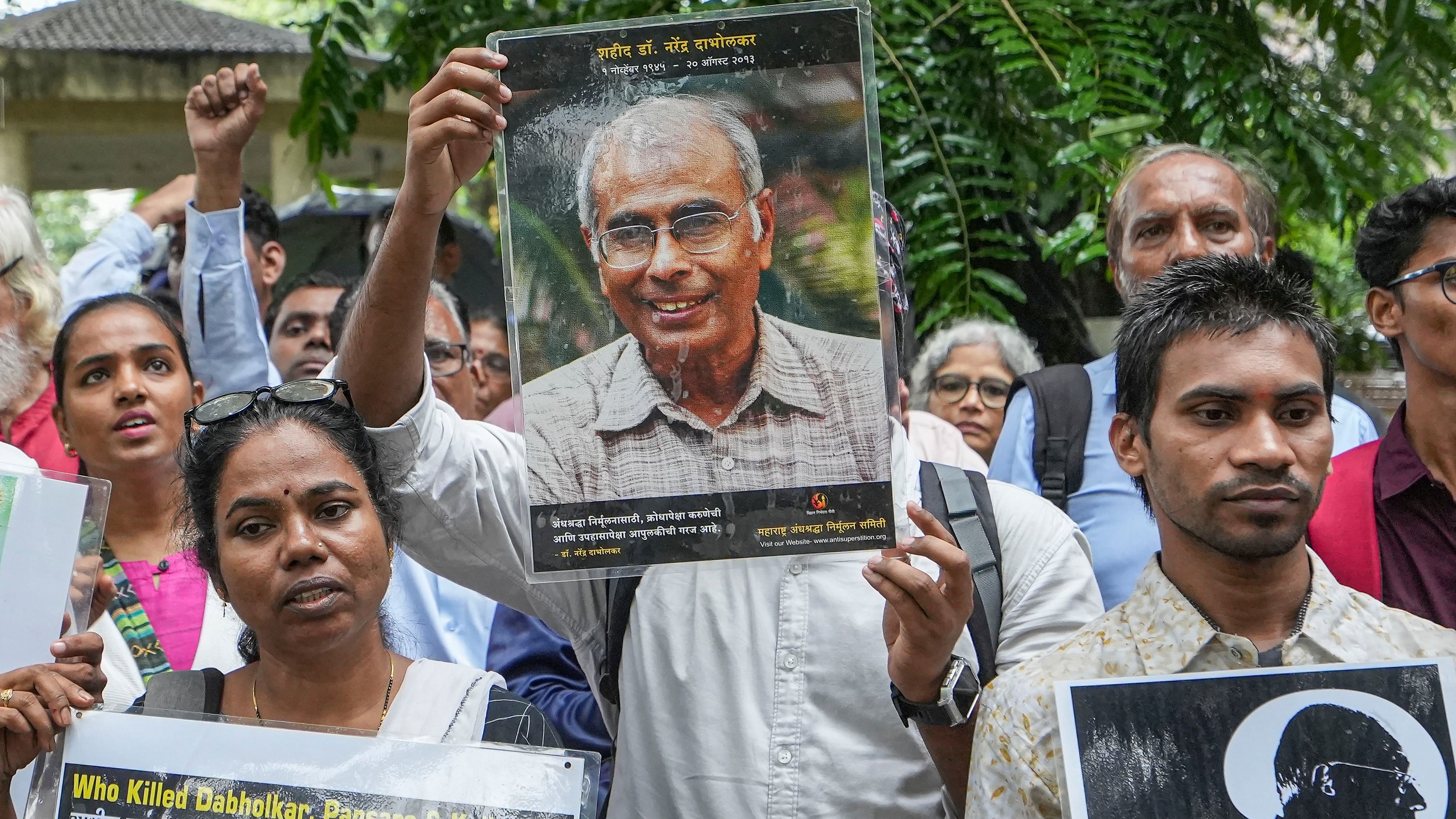
Maharashtra Andhashraddha Nirmulan Samiti member shows a portrait of Narendra Dabholkar.
Credit: PTI File Photo
The verdict in the Narendra Dabholkar murder case, which came last week, 11 years after the well-known rationalist was killed, is marked by denial of justice not only due to the delay but also due to its failure to bring to justice all those who were linked with the murder. A special court in Pune convicted two persons for shooting Dabholkar but acquitted three others who had been accused of being part of the conspiracy behind the murder. They included Virendrasinh Tawade, whom the investigating CBI had named as the “main conspirator”. The agency had maintained that all five persons were linked to Sanatan Sanstha, a Hindutva outfit, but it failed to prove the case against three. The court has made stinging remarks about the agency and its investigation. It said that the three have been acquitted not because they didn’t play a role but because the investigators – the CBI and the Maharashtra Police -- failed to do their job. The court also criticised the Maharashtra authorities for their lapses.
The court’s criticism and observations are serious and show how a case, which had attracted national attention, was subverted. The court is convinced that there was a conspiracy and that it pointed to specific persons. It said there was evidence of motive against Tawade and reasonable suspicions against the two others, Sanjiv Punalekat and Vikram Bhave, who were also acquitted, but the prosecution failed to establish their involvement. The judge also made a critical note of the conduct of the defence lawyers whose approach was “to justify the killing of Dabholkar by labelling him as anti-Hindu.” It also said that Dabholkar’s murder was an “attempt to finish his ideology.” That is why the case and its handling need to be seen in a wider context.
Dabholkar was a champion of independent thought and scientific knowledge and was a driving force behind the 2005 Maharashtra Anti-Superstition Bill, which many right-wing organisations had opposed. His murder was the first among multiple murders in Maharashtra and Karnataka, including those of leftist thinker Govind Pansare, activist M M Kalburgi, and journalist Gauri Lankesh. The links that ran through these killings became clearer over time, but it is also well-known that politics vitiated and influenced their investigations. Though Dabholkar was murdered in 2013, the accused were arrested only in 2018, when their role in the murder of Gauri Lankesh became clear. There were indications from the beginning of the slow pace and shoddiness of the investigation. The political atmosphere that prevailed after the Dabholkar murder also would have influenced the investigations and the prosecution. Justice will be done in these cases only when the conspiracy behind them is exposed and all those involved, especially the ideological masterminds behind the murders are exposed and punished.